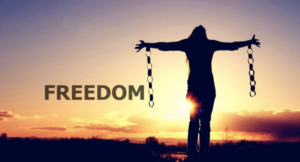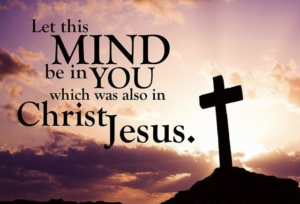Co-missioners,
A quick note, tongue somewhat in cheek, before we get to today’s main item:
 We’ve been hearing in recent weeks about the intense heat on North America’s west coast, reaching all the way up to Oregon, Washington, and British Columbia. An ELCA pastor in that area posted a photo some days ago of the Paschal candle in his or her church. It struck us as an apt metaphor of what becomes of the Church when Christ is not preached. With that in mind we share it here. Chuckle. Weep. And then thank God for the promise of Easter and the power of the Spirit who can make limp and wilting churches stand tall again. To that end we do the little we do at Crossings to remind the Church—our fellow Lutherans in particular—that Christ Himself stands tall with a mercy, a grace, a promise that defies the heat of our unbelief. Alleluia indeed! Thanks be to God for your own participation in the mission of the Risen One.
We’ve been hearing in recent weeks about the intense heat on North America’s west coast, reaching all the way up to Oregon, Washington, and British Columbia. An ELCA pastor in that area posted a photo some days ago of the Paschal candle in his or her church. It struck us as an apt metaphor of what becomes of the Church when Christ is not preached. With that in mind we share it here. Chuckle. Weep. And then thank God for the promise of Easter and the power of the Spirit who can make limp and wilting churches stand tall again. To that end we do the little we do at Crossings to remind the Church—our fellow Lutherans in particular—that Christ Himself stands tall with a mercy, a grace, a promise that defies the heat of our unbelief. Alleluia indeed! Thanks be to God for your own participation in the mission of the Risen One.
Today’s brief offering is a reflection that Steve Kuhl wrote for his little Episcopal flock in South Milwaukee when the fireworks of America’s July 4th celebration was still on everybody’s mind. His topic is freedom, as in the real-deal, the best-ever. Not freedom for the self, but from the self, and for the sake of others. Notice how Christ stands tall as Steve makes his case.
Peace and Joy,
The Crossings Community
On Political and Spiritual Freedom
by Steven Kuhl

This past weekend we celebrated the Fourth of July, the 245th anniversary of the Declaration of Independence and our struggle for our "political freedom" from what was then our own government, an "oppressive" British Empire. But political freedom is not the only kind of freedom we need because political oppression is not the only kind of oppression we experience. We also need "spiritual freedom," freedom from the oppression of our own sinful inclinations, freedom from our own propensity to be oppressive to others.
 Spiritual freedom is, therefore, very different from political freedom. Political freedom is self-focused by nature and is about asserting our rights vis a vis others. Spiritual freedom is "other-focused" by nature and is about asserting love towards others, sometimes to the point of intentionally sacrificing our rights for the good of others. As a result, the exercise of political freedom can cause conflict as one person's rights interferes with another. But spiritual freedom produces peace as both parties seek the common good, the wellbeing of each other.
Spiritual freedom is, therefore, very different from political freedom. Political freedom is self-focused by nature and is about asserting our rights vis a vis others. Spiritual freedom is "other-focused" by nature and is about asserting love towards others, sometimes to the point of intentionally sacrificing our rights for the good of others. As a result, the exercise of political freedom can cause conflict as one person's rights interferes with another. But spiritual freedom produces peace as both parties seek the common good, the wellbeing of each other.
Spiritual freedom, in other words, is about conquering sin, our propensity to be self-focused and to pursue our own interests at the expense of others. The paradigm for spiritual freedom is Jesus Christ himself as Paul describes it in Philippians 2: "though he was in the form of God, [Jesus] did not regard equality with God as something to be exploited (for his own advantage), but humbled himself taking on the form of a slave" (Phil. 2:7). Jesus used his divine status to help us weak sinners by taking upon himself, on the cross, the wage of our sin and death, and by giving us, in his resurrection, something we don't deserve forgiveness and the promise of eternal.
As Paul says, the spiritual freedom out of which Christ acted for us, we, who have received his kindness, now act toward others. He puts it like this. We "do nothing from selfish ambition or conceit, but in humility regard others as better than yourselves. Let each of you look not to your own self-interests (or we might add rights), but to the interests (and rights) of others. Let the same mind (or attitude) be in you that was in Christ Jesus" (Phil 2:3-5).
 Just imagine if Americans wanted spiritual freedom as much as they wanted political freedom, if they were as concerned about the wellbeing of their fellow Americans as they are about their own wellbeing. My guess is our political life itself would be transformed from conflict to mutual respect and our nation from a place of haves and have nots to one where "life, liberty and the pursuit of happiness" is shared equally by all. We who believe in Jesus Christ don't only need to dream about such a reality. We can live it! Live it by exercising our citizenship in spiritual freedom. Live it by reflecting the mind of Christ in the way we vote and promote the common good.
Just imagine if Americans wanted spiritual freedom as much as they wanted political freedom, if they were as concerned about the wellbeing of their fellow Americans as they are about their own wellbeing. My guess is our political life itself would be transformed from conflict to mutual respect and our nation from a place of haves and have nots to one where "life, liberty and the pursuit of happiness" is shared equally by all. We who believe in Jesus Christ don't only need to dream about such a reality. We can live it! Live it by exercising our citizenship in spiritual freedom. Live it by reflecting the mind of Christ in the way we vote and promote the common good.
If you think your neighbor would find this kind of Spiritual freedom refreshing, why not invite them to Christ, the source of it, by inviting them to [a church—your church?—] where it abounds in Word and Sacrament?




You must be logged in to post a comment.